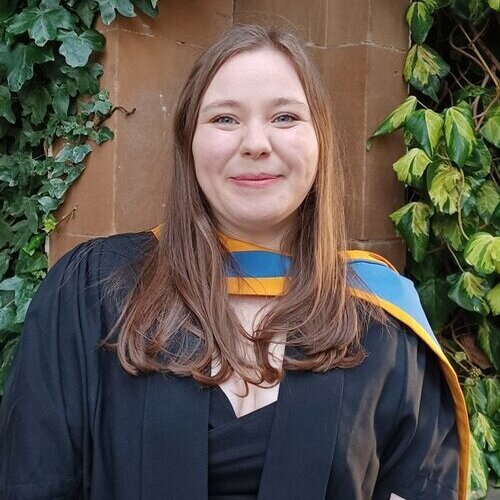What inspired you to study Diplomacy & International Security?
For years I had been interested in studying international diplomacy and had been searching for a course that offered both a historical and practical approach to discussing foreign relations. Having previously studied English Literature and Film Studies during my undergraduate degree, I was initially concerned that the transition to studying a social science may be difficult, however, the Diplomacy and International Security MSc offered a seamless transition. The courses interdisciplinary approach to the subject of international engagement gave me the freedom to tailor the course to my interests while providing a core understanding of diplomacy and security issues.
What do you enjoy most about your course?
I love the casual atmosphere in seminars that encourages relaxed yet informative discussions and debates among your group. The practitioner talks offered an incredibly privileged opportunity to hear about the experiences of diplomats and those working in foreign relations positions. The chance to interact and ask questions of world-leading experts would never have been available had it not been for this course. It offers so many practical opportunities to gain an insight into how what you are studying is affecting the world today.
What specialist knowledge/professional skills have you developed whilst studying the course?
The MSc Diplomacy and International Security course has allowed me to develop a clear understanding of the diplomatic tradition, the historical evolution of diplomacy and how this evolution impacted how diplomacy and international security are practised today. Having completed this course, it has given me the chance to develop my critical reasoning and analytical skills. The interdisciplinary aspect of the course means that you are encouraged to consider several different aspects of the subject you’re studying and encourages critical thinking when considering the historic foundations that influence present and future global issues.
What do you think of the support available?
Having undertaken this course during the COVID pandemic, and with all the challenges that posed, the support offered by the university has been exemplary. Both the academic and administrative staff go above and beyond to support students both academically and socially. The staff have done everything possible to help tackle any issues and made it clear throughout that they were available to talk, whether this was through a formal office hour, email, or during a casual coffee and catch-up session. The well-being of students is clearly at the centre of the university’s focus.
What advice would you give to a prospective student coming to study your course?
Please don’t worry if you haven’t got a background in studying history or the political sciences. While it can seem daunting to undertake a course in a subject you’re unfamiliar with, the course is designed to introduce students to this subject and the lecturers are enthusiastic about students approaching them to discuss any questions they may have. I would suggest that prospective students take time to organise their time as you are expected to undertake a lot of independent study and the prep work for seminars can seem daunting if you leave it to the last minute. Planning is key!
What are your ambitions for the future and how do you think your time at Strathclyde will help you achieve your goals?
This course has reinforced my ambition to pursue a career that includes some aspects of foreign relations. I had intended to use the expertise I gained from this course to pursue a career in journalism, more specifically in roles that discuss political foreign relations, however, I am also currently considering career options within the UK Civil Service, NGOs, and intergovernmental organizations. The practitioners’ events with diplomatic and foreign policy officials have given me a unique insight into the practical requirements needed to work in foreign relations and cemented my desire to work in this field.
